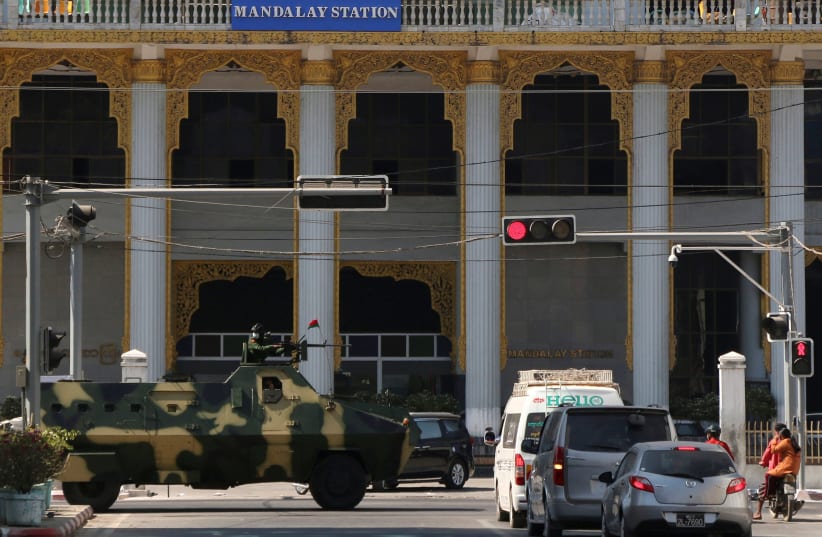Myanmar leader Aung San Suu Kyi must be released, Israel’s Foreign Ministry said on Tuesday, the day after a military coup in the Southeast Asian country.
“Israel is following the situation in Myanmar with concern,” the Foreign Ministry statement reads, “and calls for the release of the head of state, Aung San Suu Kyi, as well as of the leaders and public figures who have been arrested.”
The Foreign Ministry added that “Israel continues to support the people of Myanmar and the process of democratization, and calls for the preservation of peace, quiet and rule of law in the country and for the prevention of violence.”
In addition, the ministry said it is in contact with the Israeli embassy in Yangon and that its staff and their families, as well as Israeli citizens in Myanmar, are well.
Myanmar’s army overthrew the country’s democratically elected government on Monday, arresting Suu Kyi and transferring power to military chief Gen. Min Aung Hlaing.
Since then, caravans have been roaming the streets, blasting "patriotic music" and assaulting journalists, citizens and independent journalists reported.
On Tuesday morning, independent news organizations reported that some of the imprisoned politicians, including Suu Kyi, were released to house arrest.
Suu Kyi, a Nobel Peace Prize laureate, spent 15 years under house arrest in the struggle to bring democracy to Myanmar.
Beloved in Myanmar as "the Lady," Suu Kyi fulfilled the dreams of millions when her party won a landslide election in 2015 that established the Southeast Asian nation’s first civilian government in half a century.
However, she appalled the world two years later by denying the extent of a sweeping military-led crackdown against the Rohingya Muslim minority which forced hundreds of thousands to flee the country.
In Myanmar, Suu Kyi remains adored but she has failed to unite its myriad ethnic groups or end its decade-long civil wars. She also oversaw tightening restrictions on the press and civil society and has fallen out with many former allies.
Idan Zonshine and Reuters contributed to this report.
